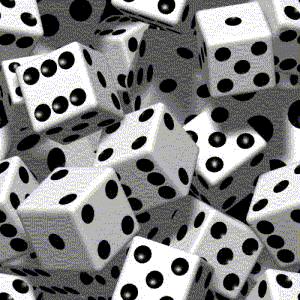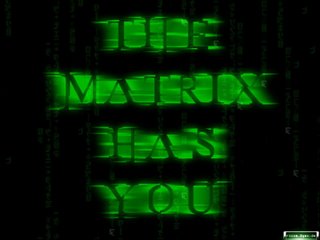Non-sequential Processing
"My software never has bugs. It just develops random features."
"Random twists of fate could be part of an alternate organized plan."
"The generation of random numbers is too important to be left to chance."
"Creativity is the ability to introduce order into the randomness of nature" - Eric Hoffer
Basic 5 Tenets of Common Universal pattern
Basic syntax of 'is' I could find no source for the first and third quotes, the second is my re-wording of a quote attibuted to Ronald Reagan who was saying he was brought up to believe that randomness was part of God's plan, and I include the fourth one because I disagree with its premise!
I could find no source for the first and third quotes, the second is my re-wording of a quote attibuted to Ronald Reagan who was saying he was brought up to believe that randomness was part of God's plan, and I include the fourth one because I disagree with its premise!
Yesterday, as I was searching (and re-searching) for information to make changes to my blog site, I kept spinning off into fascinating, sidetracking hyperlinks that would lead me further and further away from the point I first started out searching. It's the same phenomenon that occurs when I read a book. Sometimes I would get to a point that, without checking back at my history log of links, I wouldn't have a clue how I got to where I was. It's the same concept of the game my brother and I used to play when we were kids tracing back our converstaions.
At some point, two things occured to me. It reinforced one of the premises of my theory that our thoughts could similarly be traced back endlessly to our very first thought we ever had, and my theory will propose that even that thought can be traced back to the original thought. The very first one. Ever. It's a simple binary reverse engineering process. Well, maybe not so simple in practical terms, but certainly in theoretical ones. Just remember our giant sucking universal vacuum cleaner that metaphorically sucked a full-grown oak and its roots back into the original acorn.
The second thought I had reinforced was that each piece of learning or thinking affects the next sequential one directly, but each piece can easily be a random one. In other words, the binary choice I've stated that is available at each and every instant of thinking defaults to the "right" choice (implying a moral basis, or one of righteousness), unless intentionally overridden for whatever reason and with whatever consequence. However, when no such ethical purpose is at play, the decisions made, although directly influenced by the current state of knowledge, can be quite arbitary, at a serious or capricious level. This is a minor (and quite trivial) modification to my theory, since this thought only occured to me yesterday, specifically that the "default" system only applies or kicks in when it's a matter of Levels 0-3 (Base, Principle, Belief and Social) that I outlined in the basis of B.A.T. in this blog right at the very introduction to my whole line of thinking. I have stated that the existence of anything automatically creates the existence of its opposite, which can include the absence of itself (Part 5c of the Five Basic tenets) . The mirroring concept of this though, which is so fascinating to me, is that by making this adjustment I am implementing the theory as originally stated, and only realizing it after the fact.
Therefore, our learning, which largely follows a random pattern, is sequential by nature, in that it can only build on pre-requisite knowledge. That pre-requisite knowledge comes from who you may talk to that day, what information you may find on a site you pick to visit, which word the author chose to make a hyperlink to, whether you chose to go to the hyperlink or not, whether you chose to go only one level deep and then return, or whether you chose to abandon your original author in favor of some hyperlink the second author made, ad infinitum. Alternatively, {who you ran into while shopping, what the teacher said in school today,...., infinite list of interactions, actions}.
This is why I take umbrage with the fourth quote, because he implies not just one, but two, things which I believe are false assumptions. First, he implies that the goal of creativity is to seek order, and secondly he suggests that nature operates in a random fashion. Operating on the premise that two negatives cancel each other, perhaps it's a wise saying, but I think it's empty of substance or meaning. Creativity is to be different, not to extend sameness. We dishonour copycats, shame cheap knock-offs, and brand as cheats those who would plagarize (although in a later discussion, you will see that I am very much in favour of plagarism). To imply nature is not ordered is to deny the birth-life-death cycle, food chains, the patterns of a seashell or rings of an oak, and the predictability of where a planet will be years from now when we rendezvous a small, man-made probe with it.
Just a thought I had, that's all.
At one point yesterday, I started out trying to discover more about fractals, and Mandlebrot. It soon led me into a discussion of numbers: real numbers, surreal, and imaginary numbers, terminating and non-terminating numbers, and transcendental numbers. Pi is a transcendental number. It is a never-ending, never-repeating, patternless sequence of digits (now calculated by computers for several billions of decimal digit values). Each digit appears with equal frequency. We know, through our current use of computers that incredibly complex concepts can be expressed as a string of binary digits (1's and 0's). Each additional digit added, increases the scope of complex possibilities exponentially. We know scientists are currently working on cracking the DNA code and other genetic type markers.
"Somewhere inside the digits of pi is a representation for all of us -- the atomic co-ordinates of all our atoms, our genetic code, all our thoughts, all our memories. Given this fact, all of us are alive, and hopefully happy in pi. Pi makes us live forever. We all lead virtual lives in pi. We are immortal. This means that we exist in pi, as if in the Matrix".

Words of a kook? Am I on drugs? Time to hunt for aliens? Nope, this is a quote from Cliff Pickover, author of many books, contributor to "acceptable" mainstream magazines such as 'Scientific American' and 'Discover'. Why do we shut our minds to such possibilities, and write them off so quickly as being subjective mish-mash, as being buried in what I called the other day, the 5 easy dismissals?
What if we started each sentence we spoke for just one day with the words, "What if"?
"What if Leonardo da Vinci had one of today's laptops available to him?"
"What if Van Gogh dug fractals?"
"What if they gave PEACE, and everybody came?"
"What if....?"













Post a Comment